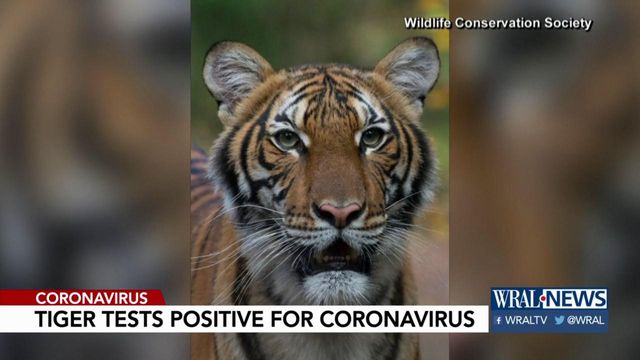While uncommon, cat owners need to be mindful of coronavirus
When a tiger tests positive for coronavirus, the immediate question is: What about other cats?
Nadia, a 4-year-old Malayan tiger who had a dry cough and a slight loss of appetite, tested positive for the novel coronavirus that has caused a human pandemic, the Bronx Zoo in New York City reported Sunday.
She is doing well, according to Paul Calle, the zoo’s chief veterinarian. So are three other tigers and three lions that show the same symptoms. And, he said, neither Nadia’s infection nor early scientific reports from China of domestic cats being infected should make cat owners fear for their pets or fear that the cats may pass the virus to humans.
“None of them actually ever acted terribly sick,” Calle said Monday of the zoo’s infected cats. But there are many respiratory ailments specific to cats, and the zoo anesthetized Nadia, took samples and sent them off for testing to Cornell University and the University of Illinois veterinary schools, and then to the National Veterinary Services Laboratory, for confirmation. The results came back positive.
Calle noted that there have been several experiments in which domestic cats were inoculated with large amounts of virus, but “that does not replicate what is happening in people’s homes around the world.” The amount of virus the cats were given, directly into the nose, was quite high.
{
"name": "blockquote",
"attrs": {
"attribution": "Katie Cannon, Carolina Tiger Rescue"
},
"children": null
}He added, “If cats were generally susceptible, there would have been lots of reports in the preceding months about that.”
Karen A. Terio, head of the zoological pathology program at the University of Illinois veterinary school, where tests for the tiger were done, said, “Given the number of people in this country that have been infected with the virus and have become ill, and the number of people in this country that own domestic cats, it seems fairly improbable that cats are an important source of the virus for people if the first case we’re diagnosing it in is a tiger.”
Confirmed human cases are well over 1 million worldwide and are still increasing. There has been one report from Belgium of a cat suffering from COVID-19, but that was unclear, Calle said. Hong Kong also reported that one cat tested positive for the coronavirus.
A study of feral cats in Wuhan, China, not yet peer reviewed, showed that some had antibodies to the coronavirus, indicating some level of exposure to the virus and some response by their immune systems. But the cats were not ill when tested.
None of this is too surprising, according to Jonathan Epstein of EcoHealth Alliance, who said that laboratory experiments showed that cats were susceptible to infection with the severe acute respiratory syndrome virus.
Calle said, however, “There’s no evidence anywhere, other than the initial spillover, that any animal has infected any person anywhere. So you do have to put things in perspective.”
{
"name": "blockquote",
"attrs": {
"body": "Up until now, pet owners were encouraged to interact with their beloved pets, but now the head of NC State College of Veterinary Medicine, Dr. Paul Lunn, says, pet owners, particularly cat owners, should be careful."
},
"children": null
}The U.S. Department of Agriculture, the World Organization for Animal Health and the American Veterinary Medical Association all state on their websites that there is so far no evidence that domestic animals can pass on an infection to people. They all advise, however, that anyone who is sick should take the same precautions about contact with their pets that they would with humans.
“There’s still a lot we don’t know,” Terio said. “We’re all trying to play catch-up and learn about this virus in real time, as things are happening.”
Epstein emphasized that it was still unclear what level of infection cats may have and whether they may transmit it to each other, which has been suggested. He said that the worldwide pandemic is being driven by human-to-human transmission but advised, as others do, to “treat cats as other family members.”
“There’s no evidence yet that cats can transmit this virus to people,” he said. “But you don’t want to take this chance in the absence of information.” Scientists at various labs are looking at animal susceptibility, both in terms of pets and with an eye to what animals could be used in laboratory studies. A preliminary, unreviewed study suggests that the virus reproduces poorly in dogs, pigs, chickens and ducks.
Among animals that may be used in laboratory tests, the virus infects genetically engineered mice, as well as some monkeys. A report accepted for publication in Cell Host & Microbe documents that ferrets both become infected and pass the virus on to each other, showing some symptoms similar to humans, such as a fever, lethargy and coughing. All the animals recovered, however.
That finding suggests that ferrets could offer an animal model, in addition to mice and monkeys, to study treatments and therapies.
As for the big cats at the Bronx Zoo, Calle said, “All of the tigers and lions only had mild illness, and they’re all showing progressive signs of recovery, and we’re expecting them to make a full recovery.”












